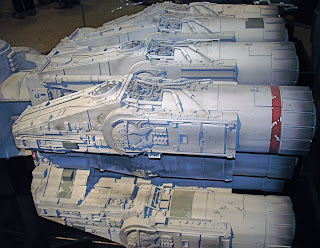I've recently become more involved with "social media". And I don't mean just starting this blog. I've also been working my
Twitter skills, working my job search skills on
LinkedIn, keeping up with the Joneses and everyone else on
Facebook, and also alpha testing the new open source
Diaspora. Diaspora is currently invite-only, by the way. I have a MySpace account, but it's been so long since I've been in there, I don't remember my login.
Pretty much half a billion people are on Facebook, so most likely you know what it is, how it works, and why you do or do not want to use it. I happen to use it to keep in touch with family, friends and former classmates. I have less than 200 "friends", all of whom I have met personally or known online for a very long time. I don't take just every friend request that comes along. I also don't play the endless, mindless games that seem to be all the rage now. I've used Facebook for several years, since before it really got mainstream popular.
LinkedIn is newer, and more serious and professional in tone and nature. No random chatty posts, there, it's all about careers - finding them, keeping them and documenting them. I've been on LinkedIn for almost two years, most of which I've also been unemployed. I'm pretty sure that central Minnesota hiring folks are not as tech savvy as their metro Twin Cities counterparts.
I've been on Twitter about two years as well, but not seriously until the last 5 or 6 months. I first signed up while at my last job, to learn it for support purposes. Someone was requesting help in using it for Community Ed networking and advertisement. As tech support for the Community Ed building, I was the guy to try it out and teach someone how to use it. Twitter is an odd duck. It wants to be fun and friendly quick sound bite microblogging, like texting for the web, but a lot of what comes across is marketing of various products and services, including people who want to help you learn to use Twitter for marketing. Another big Twitter thing is celebrities flogging their current projects. It's a good place to keep track of your favorites, if you're into that. Some celebrities are truly engaged with their fans, which is pleasant! As with Facebook, I have a relatively limited following on Twitter. I'm not one of those who follows anyone and everyone just to increase my follower count. I prefer quality over quantity, and I have been known to unfollow those who prove to be low quality. While other social networks are fine in the browser, I find that Twitter works better in a dedicated application. I happen to use TweetDeck, but there are many out there.
Diaspora - what can I say about Diaspora? It came about after a few too many of the Facebook privacy fiascoes of the past couple of years. Diaspora aims to be a social network with sane privacy and user policies. Users get much more direct and thorough control over what they share, and with whom. Diaspora is in early alpha testing, so is by invitation only, and I can attest there are still a lot of bugs to work out and features to add. Diapsora runs on a pod system, where you have an account on a pod which then connects with other pods to share data. Anyone can set up their own pod if they wish, and join in the fun. Right now, it feels like a cross between a stripped down Facebook, Google Wave and I don't know what else. Keep an eye on this one if you're into social networking. The open source nature means that Diaspora will be extensible and modifiable!
As for MySpace - does anyone still use that?
What other social networks are you using, and why would you recommend them? Leave a message in the comments!

